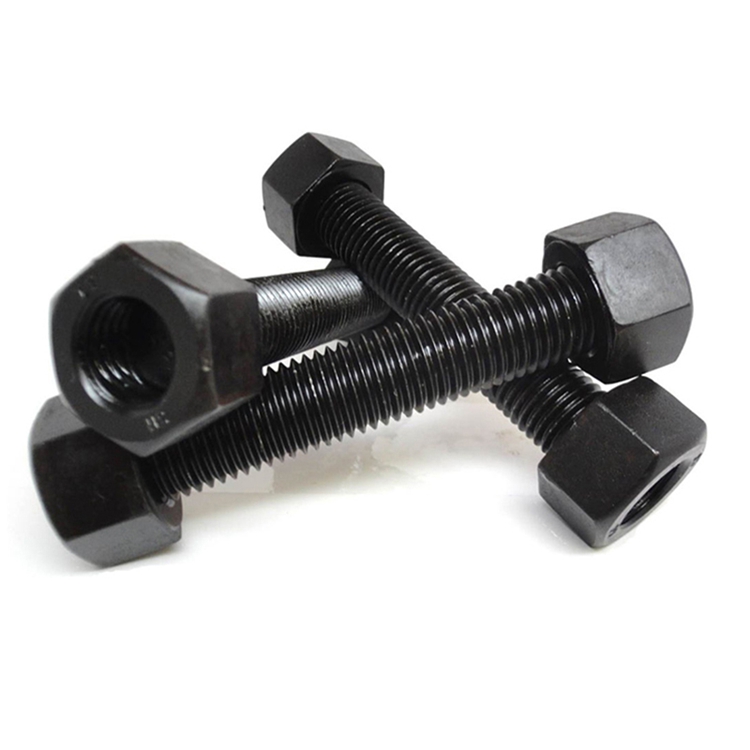High-Quality OEM M7 Bolts for Reliable Performance and Exceptional Durability in Various Applications
Aug . 14, 2024 04:35 Back to list
High-Quality OEM M7 Bolts for Reliable Performance and Exceptional Durability in Various Applications
Understanding OEM M7 Bolts A Comprehensive Overview
In the automotive and manufacturing industries, the term OEM stands for Original Equipment Manufacturer. This indicates parts that are made by the same company that produced the original components used in vehicles or machinery. One such essential part in these industries is the M7 bolt, which plays a crucial role in ensuring the structural integrity and performance of various applications.
M7 bolts are distinguished by their specific dimensions and mechanical properties. With a nominal diameter of 7mm, these bolts are commonly utilized in several applications, particularly where medium strength and durability are required. They are designed in accordance with international standards, ensuring compatibility with a vast range of products and systems. The M7 bolt falls under the category of metric bolts, which are prevalent due to their precise sizing and ease of use in global manufacturing.
Understanding OEM M7 Bolts A Comprehensive Overview
One of the critical advantages of using OEM parts like M7 bolts is their reliability. Because they are produced to exact specifications, these bolts fit seamlessly into assemblies, reducing the risk of failure that can occur with aftermarket parts, which may not meet the same rigorous standards. When it comes to vehicle repairs or manufacturing due to the precise nature of their applications, it is crucial to use parts that ensure compatibility and performance.
oem m7 bolts

Moreover, the installation of M7 bolts must adhere to recommended torque specifications. This is vital to prevent issues such as bolt stripping, breakage, or loosening, which can lead to catastrophic failures in mechanical systems. OEM guidelines tend to provide detailed specifications for installation, ensuring that safety and functionality are maintained throughout the life of the component.
Industries that utilize M7 bolts extend well beyond automotive manufacturing. They are prevalent in the production of machinery, electronics, and even construction applications. Their versatility stems from their strength-to-weight ratio and adaptability across various settings, making them ideal for projects that require dependable and durable fastening solutions.
However, it is essential to highlight that quality control measures are vital when dealing with OEM parts. The production process involves rigorous testing for mechanical properties, including tensile strength, yield strength, and fatigue resistance. Ensuring that these parameters meet industry standards protects not only the performance of the equipment but also the safety of the operators using them.
In conclusion, OEM M7 bolts are a fundamental component within the sphere of manufacturing and automotive repair. Their specific design and properties make them an ideal choice for applications requiring reliability and strength. By opting for OEM components, manufacturers and repair professionals invest in the longevity and safety of their projects. Whether you're a manufacturer seeking to ensure quality in production or a mechanic undertaking repairs, understanding the value of M7 bolts can significantly influence the outcome of your work.
Latest news
-
High-Quality Panel Stud Bolt Reliable Panel Stud Bolt Factory & Suppliers
NewsJul.08,2025
-
High-Precision Fine Thread Locknuts Manufacturer & Supplier Custom Solutions
NewsJul.08,2025
-
PH Imperial Stud Bolt – High Strength Fasteners from Leading Supplier & Factory
NewsJul.07,2025
-
High-Quality Allen Wrench Bolts Leading Factory, Company & Suppliers
NewsJul.07,2025
-
Wholesale Ball Stud Bolt - High Quality Supplier & Factory Price Reliable Wholesale Ball Stud Bolt Company
NewsJul.06,2025
-
High-Strength Alloy Bolts Manufacturer & Supplier Quality Alloy Fasteners Factory
NewsJul.06,2025
